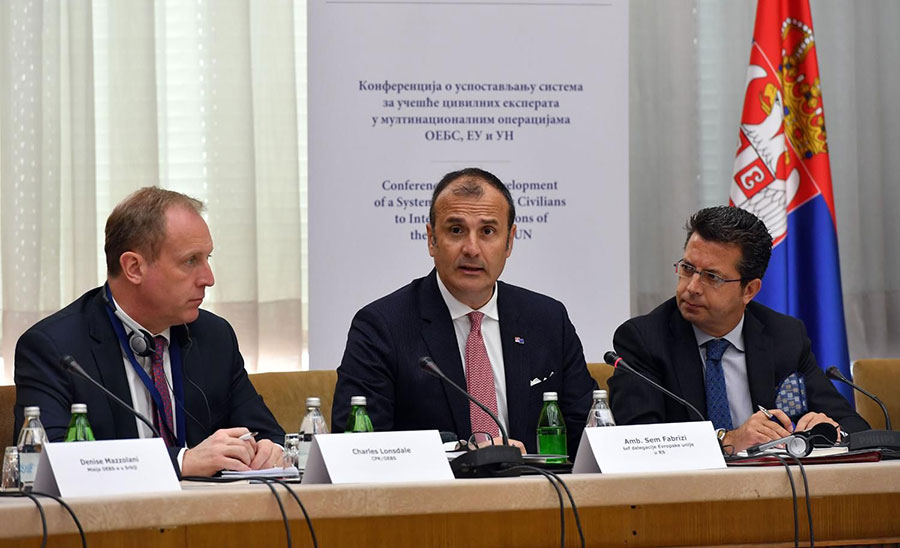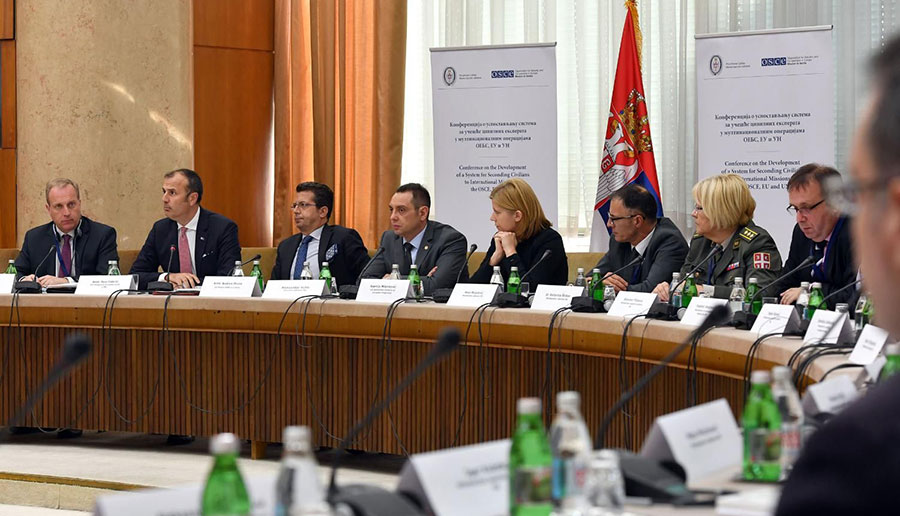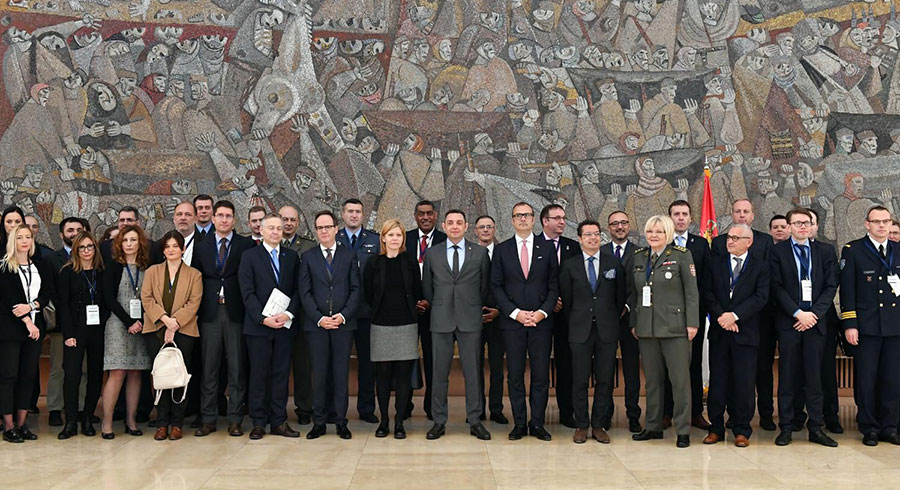Participants in a conference dedicated to development of a system for seconding civilian experts to multinational operations carried out by OSCE, EU and UN said that members of the Ministry of Defence and Serbian Armed Forces were participating in 10 peacekeeping missions, either under UN or EU command, adding that it is time Serbia stepped up and considered taking part in civil missions as of next year.
Serbian Minister of Defence Aleksandar Vulin said that members of the Defence Ministry and Serbian Armed Forces were taking part in 10 peacekeeping operations, six under UN and four under EU command. Minister added that 341 members of the Armed Forces and Defence Ministry were deployed across the world, from Cyprus to Central African Republic.
The Ministry plans to deploy 700 members of the Armed Forces and Defence Ministry to various peacekeeping operations, Vulin said.
“It is time Serbia stepped up and took part in civilian missions, not only because such an action is envisaged by a certain chapter, but for the sake of extending the country’s influence and helping those in need,” Minister Vulin said.
Head of the EU Delegation to Serbia Sem Fabrizi said that Serbia had become an important partner of the EU in both security and defence sector and a major contributor to the common security policy.

FoNet
Fabrizi described members of the Armed Forces and Defence Ministry as committed and experienced professionals, noting that some 20-30 military officers had been deployed to four out of six EU missions.
Serbia is seen as an important factor contributing to operations conducted under the common security and defence policy, EU Ambassador said and added that Serbia’s participation in civilian missions was being considered.
The EU is currently conducting 10 civilian missions, he said, adding that the process of seconding experts to civilian operations posed serious challenges because, apart from the need to deploy the best experts, those missions required a greater number of women experts.
“There are procedures to follow and challenges to overcome, but there is also the obligation to take part in those missions. However, we stand ready to support Serbia in developing a system for seconding civilian experts to international operations,” Fabrizi said.
Head of OSCE Serbia Andrea Orizio said that the ultimate goal of this joint endeavour was for Serbia to establish a fully functional rules-based system for seconding civilian experts to international missions implemented by professionals.

FoNet
“Serbia can benefit from the OSCE mission by adopting the best practice. Thanks to OSCE support and CSOs’ work, Serbia could become a model of excellence in the region,” Orizio said and added that the OSCE mission was ready to help Serbian authorities to develop such a system.
Acting Assistant Minister of European Integration Ksenija Milenkovic said that the Ministry of European Integration was taking part in all activities related to harmonisation of both the policy and legislative framework under chapter 31 – Common Foreign and Security Policy.
“Harmonisation with EU policies is seen as the main task under chapter 31. However, a substantial part of chapter 31, principal even, deals with participation in military and civilian missions conducted either by the EU, UN or OSCE,” Milenkovic said.
“The EU recognises Serbia’s excellent progress as regards chapter 31 and we insist on taking those achievements into account when assessing our readiness to open chapter 31,” Milenkovic said and added that Serbia had political interest in taking part in civilian missions, i.e. drafting legislative framework.
What is important for Serbia is to set up a well-defined legislative framework and achieve results and meet standards in areas covered by chapter 31. Taking part in peacekeeping and civilian missions and having our experts working in areas in which their expertise can be put to good use is in Serbia’s interest, Milenkovic said.




